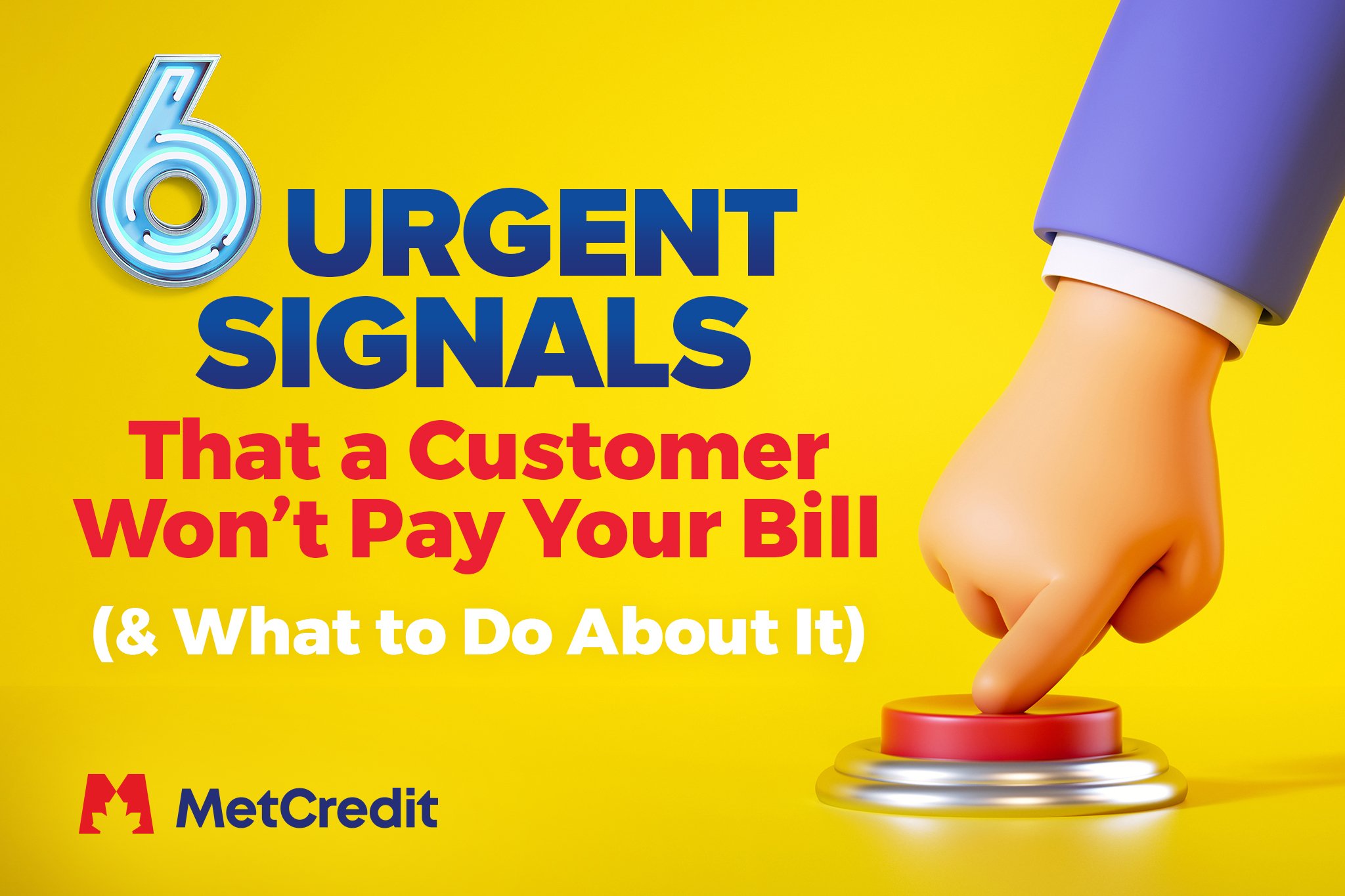 If you’ve been in business any length of time, you know the sickening feeling.
If you’ve been in business any length of time, you know the sickening feeling.
Staring at a list of overdue accounts receivable, and knowing one or more has decided not to pay — ever.
It puts you in an undesirable position. You’ve worked hard for every customer and every piece of business you’ve taken on. From marketing to prospecting and sales, to fulfilling the product. You’re out piles of much-needed money if things go the way they seem to be headed.
The only thing worse than a new customer ignoring your bill is when a once-reliable account suddenly stops paying — out of the blue.
Or so you may think. Customers seldom start paying without a single warning sign.
There are always red flags that signal an account may be in trouble, but you need to know what to look for.
Here are 8 telltale signs that you should be following up an account to ensure the bill is paid:
Don’t let stall tactics prevent you from getting paid. It’s up to the customer to honour the agreed-upon payment terms and find a way to resolve the account. When that doesn’t happen as promised, your credibility depends on how you take action. The customer’s ability to find the money is often dependent on the priority level given to your invoice, and the way to raise priority is through consequences.
When you warn that your policy is to send files to a credit-reporting collection agency after a specific number of days (we recommend 60 days past due), it says to the customer that non-payment will impact their future ability to obtain credit. If that isn’t motivating, it means the customer doesn’t expect to be in business much longer!
Avoiding bad debt requires planning and process. Before granting credit (which means any time you are not paid upfront), require customers to complete a credit application. There is nothing wrong with requiring existing accounts to complete an application when you update your policies. Pull a credit report on all customers, and look for accounts in collections, judgments, fraud accounts, or write-offs.
Finally, have a relationship with a collection agency that reports to major credit bureaus to ensure you can collect quickly when anything goes wrong. You don’t need to wait until you have accounts in arrears. We remind business leaders to Know Us, For When You Need Us™ to be comfortable and ready to go whenever the need arises. There’s never any risk because fees are deducted from the balance and don’t apply unless we collect on your behalf. (Plus for Chamber members, we offer our lowest available rate!)
It’s not a matter of luck that some B2B businesses have few or no bad debt write-offs. It’s a combination of smart planning, consistent practices — and strong business partnerships. Be vigilant and proactive, and you’re sure to see real improvements to your bottom line.
Author:
Brian Summerfelt
President and CEO of MetCredit, Canada’s top-performing consumer and commercial collection agency